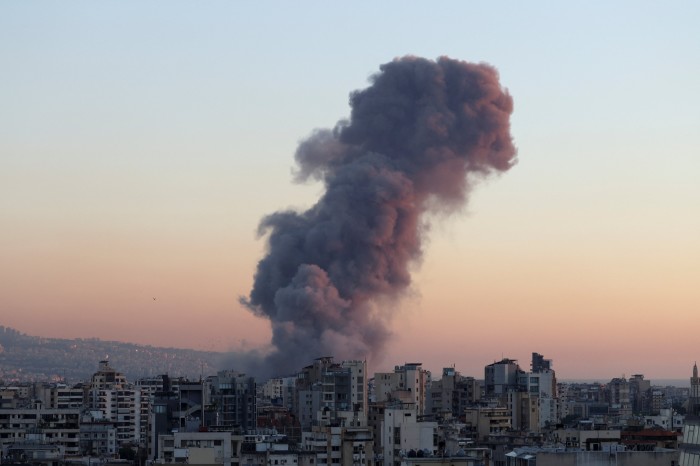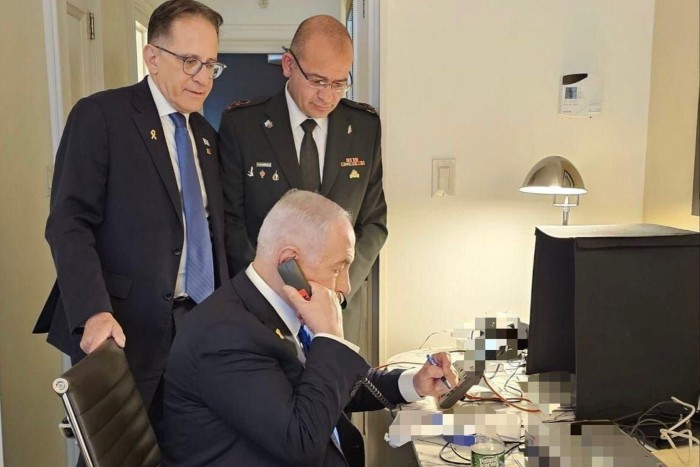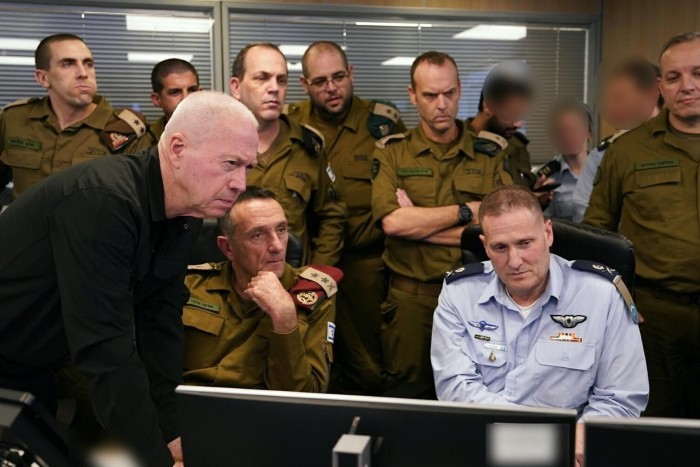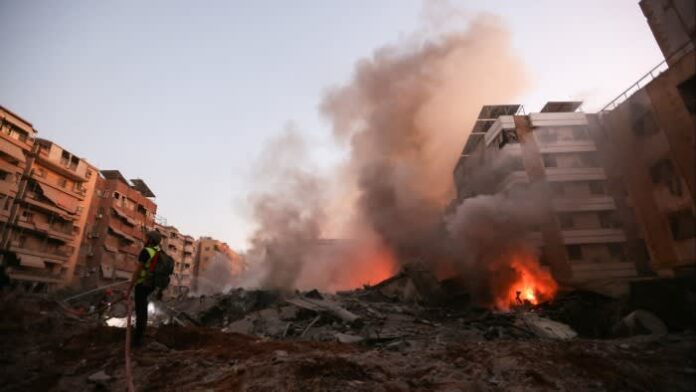Israel’s military targeted Hizbollah’s “main command centre” in Beirut’s southern suburbs on Friday in a strike aimed at Hassan Nasrallah, the group’s leader, marking the most intense bombing of Lebanon’s capital since the offensive began.
The strike on Beirut followed Prime Minister Benjamin Netanyahu’s speech at the UN, where he declared that Israel “must defeat” the Lebanese militant group despite mounting international pressure for a ceasefire.
The Israeli army reported hitting Hizbollah’s headquarters nestled beneath residential buildings. Sources indicated that the strike was directed at Nasrallah.
There has been no official confirmation from Hizbollah regarding Nasrallah’s fate or presence in Beirut during the attack.
Early on Saturday, Israel and Hizbollah engaged in rocket fire, with Israeli warplanes striking the Dahiyeh neighborhood in Beirut, a region controlled by Hizbollah and densely populated.
Senior Iranian officials stated that Israel’s actions against Hizbollah would not weaken the group, emphasizing its importance as Iran’s key proxy.
Iran’s president called on Muslim nations to condemn the Israeli strike as “blatant war crimes” and affirmed solidarity with Lebanon and the resistance axis.
An insider from the Iranian regime warned that regardless of Nasrallah’s survival, the attack on Friday would escalate the conflict significantly.
US President Joe Biden disavowed knowledge or involvement in the Israeli military operation. He expressed concern about the potential escalation of the conflict in the region.
The White House directed the Pentagon to assess and adjust the US military posture in the Middle East as necessary and secure American embassies. Vice President Kamala Harris was briefed on the Israeli action.
Residents of Beirut reported powerful explosions and significant damage in the area, resulting in casualties and injuries as rescue operations continued.
Several buildings were destroyed in Beirut’s Haret Hreik neighborhood, a Hizbollah-controlled area with a significant civilian population.
Late on Friday, the Israeli military advised residents of Beirut’s southern suburbs to evacuate, citing safety concerns related to Hizbollah interests.
Warnings similar to those issued to Palestinians in Gaza were shared by Israeli military spokesperson Avichay Adraee in a post disclosing maps and specific locations.
Israeli defense minister Daniel Hagari highlighted the threat posed by Hizbollah’s anti-ship missiles and underscored continued surveillance over Beirut airport to prevent weapon deliveries.
On Saturday morning, the IDF confirmed targeted strikes on Hizbollah weapons stored under civilian structures in Dahiyeh.

The significant targeting of Nasrallah heightens the risk of a forceful response from Hizbollah and Iran, with Hizbollah firing rockets towards Israel in retaliation.
Nasrallah’s role in the Iran-backed resistance axis has gained prominence following the death of Qassem Soleimani, Iran’s top commander, in 2020.
The 64-year-old leader, seldom seen in public, has been in hiding for much of the past two decades, delivering public addresses via video link from undisclosed locations.
The Israeli strike occurred shortly after Netanyahu’s UN speech, where he reiterated Israel’s stance against Hizbollah and Hamas, warned Iran, and criticized the UN as anti-Semitic.
Netanyahu’s abrupt departure from New York to Israel on the Sabbath underscored the gravity of the situation in Lebanon, a rare move for an Israeli prime minister.


“Israel has every right to eliminate this threat and ensure the safety of our citizens. That is our mission,” Netanyahu emphasized.
Netanyahu’s speech, met with both support and dissent, followed a US and French proposal for a ceasefire to avert an all-out conflict.
In his address, Netanyahu pledged sustained pressure on Hizbollah and confirmed continued offensive actions against Hamas in Gaza until Israeli hostages are released and Hamas is neutralized.






